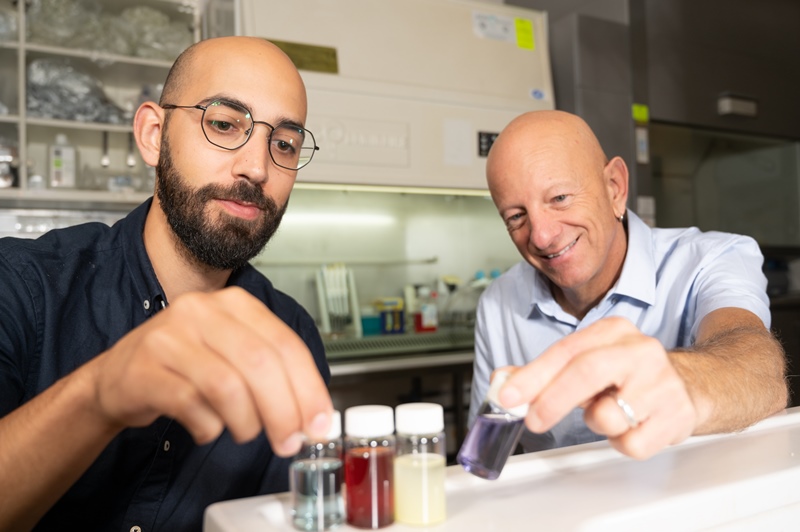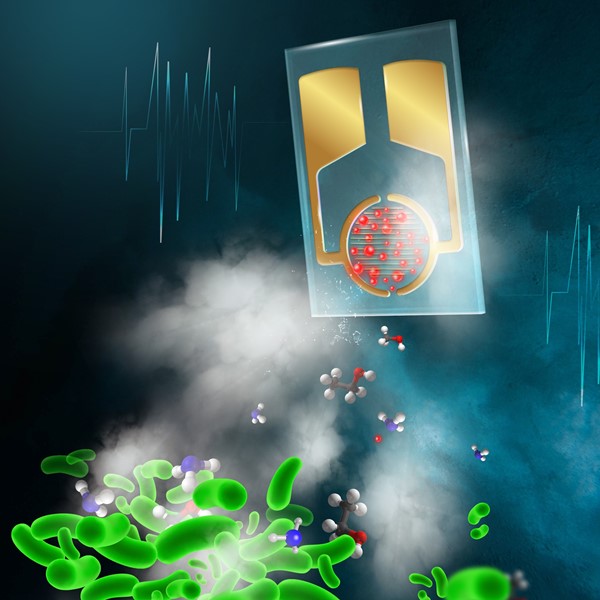A multidisciplinary team of BGU scientists has invented an artificial nose that detects a variety of bacteria. There are numerous potential applications for an artificial nose capable of continuous bacterial monitoring – a feat which was deemed elusive until now.
“Together with collaborators in the Software and Information Systems Engineering here at Ben-Gurion University, we invented an artificial nose based on unique carbon nanoparticles (“carbon dots") capable of sensing gas molecules, particularly detecting bacteria through the volatile metabolites they emit to the air," says lead researcher Prof. Raz Jelinek.

Above:Prof. Raz Jelinek (right) and his PhD Student Nitzan Shauloff (Photo Credit: Dani Machlis/BGU)
The artificial nose uses chemical reactions and electrodes to “scent" bacteria. Technically, it records the capacitance changes induced upon binding vapor molecules onto interdigitated electrodes (IDEs) coated with carbon dots exhibiting different polarities. Machine learning can be applied to train the sensor to identify different gas molecules, individually or in mixtures, at high accuracy.
Their findings were published in the prestigious peer-reviewed journal Nano-Micro Letters.
Some of the potential applications include food quality - detecting spoiled food; identifying bacteria in hospitals and public buildings; disease diagnostic tests through breath; speeding up testing of lab samples; identifying “good" vs. pathogenic bacteria in the microbiome; identifying poisonous gases; and environmental monitoring.
The artificial nose is patent pending.

Above: An illustration of the artificial nose (Photo Credit: Prof. Raz Jelinek)
Prof. Jelinek, the Vice President for Research & Development at Ben-Gurion University is also a member of the Department of Chemistry and the Ilse Katz Institute for Nanoscale Science and Technology. He is the incumbent of the Carole and Barry Kaye Chair in Applied Science.
Other researchers on the team included: Nitzan Shauloff, Dr. Ahiud Morag, Dr. Seema Singh, and Ravit Malishev of the Department of Chemistry and Prof. Lior Rokach, Chair of the Department of Software and Information Systems Engineering.
Media Coverage:
JPost
YNet
Israel 365 News